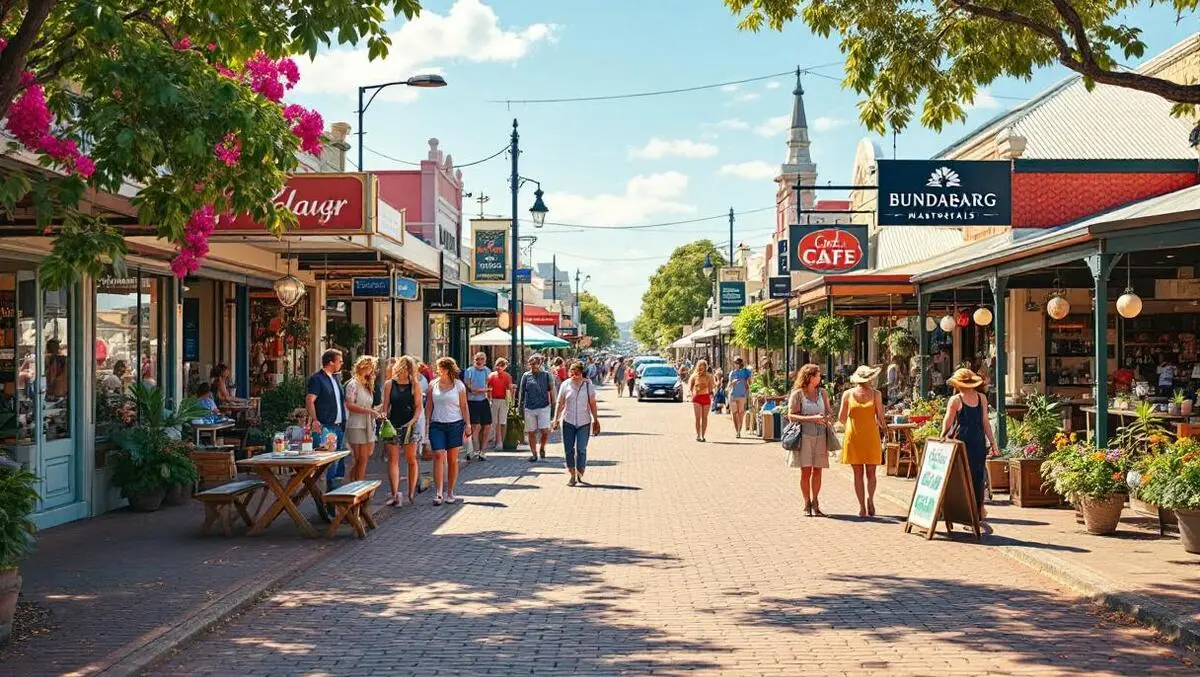
Bundaberg leads Australia in booming small business growth
Bundaberg, Queensland has topped GoDaddy's 2025 list of Australia's most entrepreneurial cities, following a 178% rise in small business startups last year.
The surge in Bundaberg's small business sector outpaced Sydney's growth rate by over 2.4 times, with the latter city seeing a 73% increase in startups over the same period. When taking into account a two-year span, Bundaberg's growth in new businesses reached 192%.
This data comes from GoDaddy's Small Business Research Lab, which studies the economic contributions of 300,000 small businesses nationwide and analyses the experiences and perspectives of their founders.
Bundaberg's rate of new business formation exceeds other leading Australian cities, including Palmerston in the Northern Territory, which experienced a 46% rise in small businesses, Albany in Western Australia with 23% growth, and Ipswich in Queensland at 21% growth over the year.
Small businesses in Bundaberg span various industries. The city is notably home to beverage manufacturers, encompassing both alcoholic and non-alcoholic firms, which have contributed to the development of a diverse entrepreneurial ecosystem and played a significant role in shaping the local and broader Australian economy.
Data from the Australian Bureau of Statistics indicates that the number of businesses in Bundaberg increased from 6,456 in 2018 to 7,201 in 2023, suggesting both population increases and the need to serve new households in the area.
Bundaberg's local economy was valued at AUD $5.1 billion at the beginning of 2024, with an annual growth rate of 7.1%, making it the second fastest growing local economy in Queensland.
Sydney, Australia's largest city, ranks second on the entrepreneurial list. Its business growth is seen as evidence that metropolitan centres remain active hubs for small business and innovation in the country.
Palmerston, in third place, has emerged as one of Australia's fastest-growing regional areas, a trend attributed to its low median age relative to the national average and increased investment in urban development and infrastructure.
The research points to a broader trend in which regional cities are no longer viewed as trying to catch up with their metropolitan counterparts. Instead, smaller cities are now at the forefront of digital adoption and small business expansion.
Nationwide, almost half of Australian small businesses employ at least two people, with full-time positions comprising 38% of these roles, according to the research. Moreover, 39% of small business owners across the country plan to hire more staff within the next two months.
Starting a small business has become increasingly accessible, with 38% of entrepreneurs nationally indicating that they launched their companies with less than AUD $1,000 in initial investment. Additionally, close to three in ten small businesses are now reporting monthly revenues in excess of AUD $10,000.
Suzanne Mitchell, GoDaddy Australia Market Lead, said: "It's inspiring to see such strong small business growth in regional areas across Australia. It's a testament to not only to the importance of regional entrepreneur ecosystems in driving the Australian economy as a whole, but also to investing in these ecosystems to support small business owners.
"It's now easier than ever to get started, and grow your business online, no matter where you live. Being a small business doesn't mean having small ambitions. Countless Australian success stories show that small, independent businesses can go far on the local, national and even international scene. By providing new jobs and opportunities to local areas, small businesses act as the backbone of Australia's economy. When they thrive, we all thrive."
According to the GoDaddy Small Business Research Lab, the top five most entrepreneurial Australian cities for the period between January and December 2024 are Bundaberg (177.94% growth), Sydney (73.46%), Palmerston (46.15%), Albany (22.7%), and Ipswich (20.99%).


